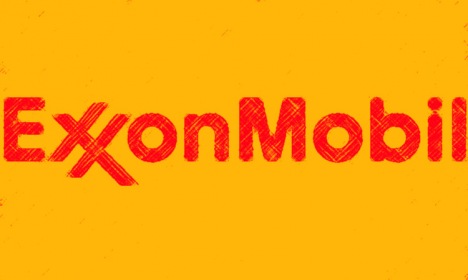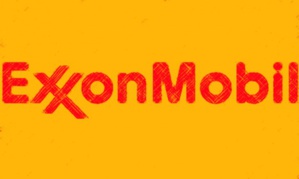Dailycsr.com – 27 May 2019 – Recently, the BoE’s Governor, Mark Carney as well as the Bank of France’s Governor, François Villeroy de Galhau wrote an open letter on the financial risks due to climate change, wherein they mentioned:
“If some companies and industries fail to adjust to this new world, they will fail to exist.”
It comes as a “stark warning” from two of the “most influential central banks” in the world, whereby highlighting the claims of many investors who thought that markets, and the regulatory responses towards the climate change could potentially either turn tables for sectors and markets or to capture “the largest companies” only in the pages of history.
However, many major gas and oil companies, including ExxonMobil, seem to not pay attention to these warnings, which now rests only in the hands of the investors to “seriously question the company’s governance”. With the approaching “annual general meeting” of Exxon, “New York State Comptroller Tom DiNapoli and the Church of England” have said that they cast their vote against the company’s board, but they also mentioned that their vote will aim to separate the position of the “board chair and CEO” for it seems to have “become a referendum on Exxon’s paltry engagement with investors on climate risk”.
The examples of Exxon’s misalignment with the climate change agenda can easily be notices. Even though, the peers of the company have miles to travel before containing their carbon footprints, at least they have starting walking in the direction, whereas Exxon shows no initiative to do so. As per Ceres:
“Shell has set short- and long-term greenhouse gas emissions reduction targets and articulated increasingly clear strategies to manage the low-carbon transition. BP and Equinor have each committed to aligning their capital spending with the goals of the Paris Climate Agreement. Exxon, on the other hand, has refused to set any business-wide emissions reduction target and is taking a business-as-usual approach to investment”.
Here are some of the actions taken by Exxon in stark opposition to curb the effects of the climate change:
“Meanwhile, Exxon’s board has fought to keep a similar proposal off its ballot -- even though investors representing $9.5 trillion in assets publicly urged it be allowed to go to a vote. And while peers regularly make independent directors available to meet with investors to discuss climate strategy, Exxon has refused to engage in a meaningful way with its investors on climate change. These investors include those involved in Climate Action 100+, an investor-led initiative backed by investors with more than $33 trillion in assets under management”.
Unfortunately, climate change is not a trending concern to show ones support it is about “due diligence and fiduciary duty” and to quote the chief executive of Shell, climate change has the “potential to disrupt our industry on...a deep and fundamental level.”
While, the chief executive of Equinor warned that in case, the oil industry fails to lead the way in Paris Agreement, the sector is in risk of being “dragged into a low-carbon future.”
References:
www.3blmedia.com
“If some companies and industries fail to adjust to this new world, they will fail to exist.”
It comes as a “stark warning” from two of the “most influential central banks” in the world, whereby highlighting the claims of many investors who thought that markets, and the regulatory responses towards the climate change could potentially either turn tables for sectors and markets or to capture “the largest companies” only in the pages of history.
However, many major gas and oil companies, including ExxonMobil, seem to not pay attention to these warnings, which now rests only in the hands of the investors to “seriously question the company’s governance”. With the approaching “annual general meeting” of Exxon, “New York State Comptroller Tom DiNapoli and the Church of England” have said that they cast their vote against the company’s board, but they also mentioned that their vote will aim to separate the position of the “board chair and CEO” for it seems to have “become a referendum on Exxon’s paltry engagement with investors on climate risk”.
The examples of Exxon’s misalignment with the climate change agenda can easily be notices. Even though, the peers of the company have miles to travel before containing their carbon footprints, at least they have starting walking in the direction, whereas Exxon shows no initiative to do so. As per Ceres:
“Shell has set short- and long-term greenhouse gas emissions reduction targets and articulated increasingly clear strategies to manage the low-carbon transition. BP and Equinor have each committed to aligning their capital spending with the goals of the Paris Climate Agreement. Exxon, on the other hand, has refused to set any business-wide emissions reduction target and is taking a business-as-usual approach to investment”.
Here are some of the actions taken by Exxon in stark opposition to curb the effects of the climate change:
“Meanwhile, Exxon’s board has fought to keep a similar proposal off its ballot -- even though investors representing $9.5 trillion in assets publicly urged it be allowed to go to a vote. And while peers regularly make independent directors available to meet with investors to discuss climate strategy, Exxon has refused to engage in a meaningful way with its investors on climate change. These investors include those involved in Climate Action 100+, an investor-led initiative backed by investors with more than $33 trillion in assets under management”.
Unfortunately, climate change is not a trending concern to show ones support it is about “due diligence and fiduciary duty” and to quote the chief executive of Shell, climate change has the “potential to disrupt our industry on...a deep and fundamental level.”
While, the chief executive of Equinor warned that in case, the oil industry fails to lead the way in Paris Agreement, the sector is in risk of being “dragged into a low-carbon future.”
References:
www.3blmedia.com


 ExxonMobil Remains Misaligned With Climate Change Agenda
ExxonMobil Remains Misaligned With Climate Change Agenda





 Companies
Companies